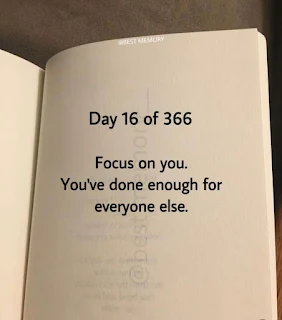There's a popular misconception about giving that if you give endlessly, selflessly, and without reservation, you are embodying a virtue that elevates you above others.
While generosity and kindness are undoubtedly admirable qualities, there's a clear difference between being a genuine giver and falling into the trap of over-giving. This makes us drop an important question: "Are you settling the fairness boundaries and reviewing your priorities"?
There's more than enough history and testimonials to back up the fact that there are blessings in sharing with kindness and doing charities.
In fact, the Gospel of Luke (6:38) echoes the sentiment that giving is a reciprocal act. 'Give, and it will be given to you...' encapsulates the idea that generosity not only benefits others but also brings abundance to the giver. It's a call to embrace a spirit of selfless giving, acknowledging the interconnectedness of humanity.
In Islam, the Quran (2:261) provides a beautiful analogy for those who spend in the way of Allah. It likens their generosity to a seed that grows seven ears, each bearing a hundred grains. This vivid imagery underlines the major rewards of charitable acts, showcasing the magnanimity of Allah and encouraging believers to contribute generously to the betterment of society.
I have seen positive changes and sudden growth in my life after sacrificing what I have to help others in the name of charity and compassion. My most inspiring memory of charity was when I had a sick sister in the hospital diagnosed with a blood disease for two weeks and came back home so strong.
What surprised me was that I didn't give up with the intent of getting something back or that my sister would be well. Charity is so miraculous but:
How do you know you're an overgiver?
To know you're an over giver just pay attention to how you prioritize other people over you.
Honestly below of tips that confirm you're an overgiver
- You can't say no: Just remember those times you're asked something that you honestly, don't want to but because you're afraid of saying no you accept it with unhappiness in your heart.
- You can notice it: Oh! It's just something you can feel, you know that your giving isn't genuine.
- You never set clear boundaries: If you are someone who lets anyone dive into your space or take things without your permission then you might be someone who gives and forgets yourself.
- You give people what you don't have: Meaning you over-sacrifice for others. If you find yourself constantly borrowing from others to help others then you're also an overgiver.
- You feel sorry for making your own decision
- You're too nice: It is cool to be nice, but it is also a form of weakness because being too nice will break you,
What is wrong with being an over-giver?
If you're an overgiver people will take your commitment and kindness for granted. You'll be manipulated even most people will take advantage of you.
How do you set boundaries against the manipulation of being overgiver?
1. Self-awareness
Recognize when you're being overly giving and understand the impact on your well-being.
2. Clarify your limits
Obviously, define your boundaries and communicate them assertively to others. When someone comes to borrow something that's not yours, clarify that it's not yours and you can't give it, because if there's any problem in the future,
people won't care.
3. Learn to say no
Practice
saying no without guilt, and prioritize your own needs and priorities. When you have the courage to say no, others will respect your boundaries and most importantly you'll be proud and free in yourself.
4. Prioritize self-care
Make time for activities that recharge you and maintain a balance in your life. it's never a selfish thing, if you take good care of yourself others will love and respect you. just know that anything that happens to you is your fault, and prioritize yourself.
5. Evaluate relationships
Assess whether your relationships are mutually supportive and adjust your level of giving accordingly.
6. Communicate openly
Share your feelings and concerns with others, fostering open communication about expectations.
7. Set realistic expectations
Understand that you can't please everyone, and it's okay to prioritize your own needs.
8. Seek support
Connect with friends, family, or a therapist to discuss your challenges and gain perspective.
9. Reflect on motivations
Understand why you feel the need to overgive and work towards healthier motivations.
10. Practice assertiveness
Develop assertive communication skills to express your needs without feeling guilty or anxious.
Examples of overgiving
Overgiving, though well-intentioned, can have unintended consequences on our well-being. Some examples of stories to understand the subtle traps of excessive generosity in various scenarios.
Example 1: The Dedicated Colleague
You know, there's this colleague at work, Sarah. She's always been the one to stay late, helping out whenever someone needed it. It started great—everyone appreciated her dedication. But then, as her workload piled up, instead of setting some boundaries, she just kept taking on more. I remember one day; she looked so stressed but still took on another project. It became a cycle. Her mental health suffered, and relationships at the office got strained. It's like her overgiving turned into this unspoken expectation, and no one realized how much it was affecting her. She told me she might get hated by coworkers, but I encouraged her to speak up, and when they disagree, she should stop handling other people's tasks, and responsibilities.
Example 2: The Diligent Student
So, there's this student, Alex, in our class back then. Always the one to help out with assignments, never saying no. As exams approached, though, it got crazy. Alex was drowning in their own work, but still, every time someone asked for help, he said yes. It was impressive in a way, but then I saw Alex's grades slipping. The constant need to assist others took away time from personal studies. It's like he was so focused on helping everyone else that he forgot about himself.
It's a fine line, you know, between being generous and ensuring you're taking care of your own stuff because it helps reduce mental stress.
Now, let's address some sensitive FAQs on this topic:
What if saying no makes me feel guilty?
It's normal to feel guilty at first, but remember that setting boundaries is a form of self-care. It's okay to prioritize your well-being by saying "I'm sorry".
How do I communicate my boundaries without hurting others?
Be honest and gentle in your communication. Express your limits kindly, and point out that it's about finding a balance that works for both parties.
What if people don't understand my need for boundaries?
It might take time for others to adjust, and that's okay. Stay consistent with your boundaries, and eventually, people will respect and understand your needs. If they don't, goodbye to the friendship or relationship.
Is it selfish to prioritize myself over others sometimes?
No, it's not selfish. Taking care of yourself ensures you can help others in the long run. It's about finding a healthy balance.
How can I avoid burnout while still being supportive?
Prioritize self-care, schedule breaks, and communicate openly with others about your workload. It's okay to ask for help or delegate tasks when needed.
Conclusion
If you've just realized you're an overgiver, what next? Will you continue to be manipulated by others or make the best choice for yourself? I know it's not easy, because it's like a journey but if you love yourself, and know your whys, you'll do it.
It's about finding that balance where you can still be there for others without losing sight of your own needs. It's a reminder that a healthier approach to generosity can lead to a more fulfilling relationship with yourself and others plus a better, more bearable way of living.





